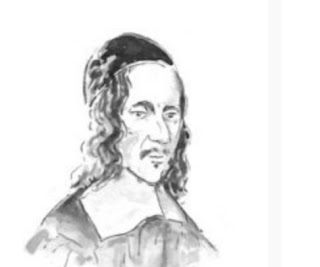Hello readers!
Welcome to my blog . This blog related to the thinking activity on B.A. poem like : " Virtue."
Sweet day, so cool, so calm, so bright,
The bridal of the earth and sky:
The dew shall weep thy fall to-night;
For thou must die.
Sweet rose, whose hue angry and brave
Bids the rash gazer wipe his eye,
Thy root is ever in its grave,
And thou must die.
Sweet spring, full of sweet days and roses,
A box where sweets compacted lie,
My music shows ye have your closes,
And all must die.
Only a sweet and virtuous soul,
Like season'd timber, never gives;
But though the whole world turn to coal,
Then chiefly lives.
☆ Introduction of the poet :
George Herbert was born into a wealthy and titled family at Montgomery Castle, in Wales, on April 3, 1593, as one of nine children. His father, Sir Richard Herbert, died in 1596, when George was three years old.Herbert's first poems were Latin sonnets that he wrote for his mother. In them, he argued that a more fitting subject for poetry than love for a woman was love for God. His first published verses appeared in 1612. They were two poems, also in Latin, written in memory of King James's son Prince Henry, who had died that year. In 1624 and 1625, Herbert was elected to Parliament to represent Montgomery. However, rather than pursuing a career in politics or as a courtier, which had been his intention, after the death of King James, he devoted himself to the priesthood. In 1630, Herbert took holy orders in the Church of England and became the rector of Bemerton, near Salisbury. He married Jane Danvers, the cousin of his mother's second husband, in 1629. During his three years as a priest, Herbert wrote A Priest to the Temple; or, The Country Parson, His Character, and Rule of Holy Life, in which he set forth a guide for pastors in caring for their parishioners and in developing their own spirituality.
☆ Analysis of this poem:
"Virtue" is one of the poems in a collection of verse called The Temple (1633), which George Herbert wrote during the last three years of his life. By then, he had taken holy orders in the Anglican Church and become rector in Bemerton, England, near Salisbury. Herbert's poems are lyrical and harmonious, reflecting the gentle voice of a country person spreading the Christian message. He appreciates the beauty of creation not only for its own sake but also because he sees it as a mirror of the goodness of the Creator. Yet, despite Herbert's sense of the world's loveliness, his poems often reflect the transience of that beauty and the folly of investing it with any real value. In "Virtue," he presents a vision of an eternal world beyond the one available to sense perception.
Implicit in "Virtue" is a delicately expressed struggle between rebellion and obedience. The understated conflict lies between the desire to experience worldly pleasures and the desire.or as Herbert would insist, the need to surrender to the will of God. The battle waged between rebellion and obedience can be seen more clearly in one of the best known poems in The Temple, "The Collar." Therein, the poet "raves'' against the yoke of submission that he must bear until he hears the voice of God call him "child"; then, he submissively yields, as the poem ends with the invocation "My Lord!" This conclusion indicates that what the narrator feels about the experience of the natural world is of less authenticity than an inner voice of authority that directs him toward God.Herbert's poetry displays a conjunction of intellect and emotion. Carefully crafted structures, like the first three quatrains, or four-line stanzas, of "Virtue," all of which are similarly formed, contain sensuously perceived content, like depictions of daytime, nightfall, a rose, and spring. Such a combination of intellect and emotion, in which the two forces.
expressed in bold metaphors and colloquial language, struggle with and illuminate each other, is most apparent in the poetry of one of Herbert's contemporaries, John Donne, and is called metaphysical poetry. In "Virtue," an example of this combination of the intellectual and the sensuous can be seen in the second line of the third quatrain, when the spring is compared to a box of compressed sweets.
In "Virtue," which comprises four quatrains altogether, Herbert reflects on the loveliness of the living world but also on the reality of death.Building momentum by moving from the glory of a day to the beauty of a rose to the richness of springtime, while reiterating at the end of each quatrain that everything "must die," Herbert leads the reader to the last, slightly varied quatrain. There, the cherished thing is not a tangible manifestation of nature but the intangible substance of "a sweet and virtuous soul." When all else succumbs to death, the soul "then chiefly lives." Not through argument but through an accumulation of imagery, Herbert contrasts the passing glories of the mortal world with the eternal glory of the immortal soul and thereby distinguishes between momentary and eternal value.
Thank you...

Very good
ReplyDeleteVery nice
Thank you
Delete